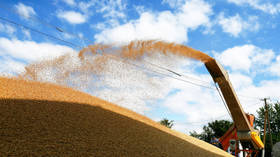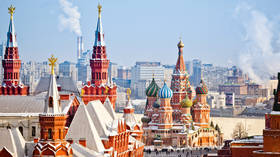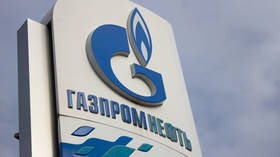Hungary expands list of banned Ukrainian imports

Hungary has placed a temporary import ban on most agricultural goods from Ukraine, according to a government decree published on Tuesday.
Essentially all grain and goods made from grain of Ukrainian origin are no longer allowed to be imported to the country, including baked goods and flour, according to the decree. The ban also covers all types of meat and most vegetables, as well as honey, eggs, sugar, cooking oil, and wine.
The authorities note that the measures are temporary and will last either until July 30, 2023 or until “effective joint EU action” is taken with regard to Ukrainian food imports.
The ban does not cover the transit of Ukrainian products, the decree notes, “only imports for the purpose of sale on the Hungarian market are subject to the restrictions.”
Hungary followed Poland’s lead in imposing restrictions on Ukrainian grain and oilseeds last week. Both nations cited the uncontrolled inflow of cheap produce from Ukraine, which threatened to destabilize domestic agricultural markets. The EU lifted tariffs on Ukrainian grain last year to help facilitate it reaching global markets. However, the initiative has backfired as much of the produce has become stuck in Eastern Europe, while local farmers have complained about falling prices for their products.
On Tuesday, Slovakia became the third EU country to ban Ukrainian grain and other agricultural products, while Bulgaria did so on Wednesday. Romania said it is currently preparing a similar measure.
The five countries last month asked the European Commission to reintroduce import duties and quotas on Ukrainian imports. So far, however, Brussels has been reluctant to do so, and slammed the countries' unilateral actions as “unacceptable” and against the bloc’s rules.
The European Commission on Wednesday said it will prepare a new package of financial support worth €100 million for Eastern European farmers affected by imports of Ukrainian grain.
“If you remember, we have already provided a support package of €56.3 million for the most affected farmers [in Poland, Romania and Bulgaria], and we are now preparing a second financial support package,” European Commission representative Dana Spinant said at a press briefing. She added that the Commission would also implement protective measures for certain categories of crops, particularly wheat, sunflower and rapeseed, and would study the impact of Ukrainian imports on other agricultural products.
For more stories on economy & finance visit RT's business section













